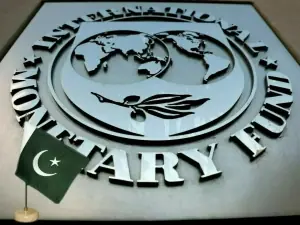Should MNAs be banned for life for going against party policy, inquires Justice Ahsan
4 min readJustice Ijaz ul Ahsan on Wednesday remarked that Article 63-A of the Constitution termed lawmakers' dissent from the party wrong and inquired whether it was wrong to the extent that it could lead to lifetime disqualification of assembly members.
He expressed this while hearing the presidential reference seeking the top court’s interpretation on Article 63-A of the Constitution and the Supreme Court Bar Association’s petition for peaceful execution of the no-trust motion against Prime Minister Imran Khan.
A five-member bench of the apex court headed by Chief Justice of Pakistan Justice Umar Ata Bandial and comprising Justice Ijaz ul Ahsan, Justice Mazhar Alam Miankhel, Justice Munib Akhtar and Justice Jamal Mandokhail heard the case.
Sindh House attack case
At the onset of the hearing, a police report related to the accused involved in the attack on the Sindh House in Islamabad — where disgruntled MNAs of the ruling Pakistan Tehreek-e-Insaf took refuge, citing "security concerns" — was submitted in the court.
The Islamabad attorney general told the court that out of the 16 accused involved in the attack, some were based in Khyber Pakhtunkhwa and Sindh. He added that police had arrested a party worker named Tauseef Khan.
He continued that non-bailable arrest warrants had been issued for PTI MNAs involved in the attack and they would be arrested despite the session of the National Assembly on the no-confidence motion against Prime Minister Imran Khan being underway.
At this the Sindh attorney general highlighted that names of those people who provoked the accused to attack the government building were not included in the first information report.
CJP Bandial remarked that the Sindh AG had legal forum to address the issue and he should consult there.
The chief justice directed the federal capital police to complete the legal proceedings as soon as possible and submit the report in the top court on Monday.
Duration of disqualification under Article 63-A
As the focus of the hearing shifted towards the presidential reference, Justice Mandokhail inquired whether the president asked for an opinion from the Supreme Court and whether the top court's opinion would be applied to the proceedings of the National Assembly. He further inquired whether the reference was submitted in the apex court on the advice of the Assembly members and the president as a speaker is the custodian of the House.
Starting his arguments in the case, Advocate Makhdom Ali Khan, — who is representing Pakistan Muslim League-Nawaz in the case — said the attorney general could reply to all these question and it was bound to implement the Supreme Court's opinion on the assembly proceedings as per Hasba Bill verdict. His arguments would be related to the maintainability of the reference, he added.
Advocate Khan said legally the top court was not bound to conduct hearing on a presidential reference but it did so out of respect for the office. He said the reference could have been returned as it contained a question related to political matter and not legal ones. The government intends to receive a "greater relief" under Article 63-A than the one written in the Constitution, he added.
The PML-N lawyer added it was inappropriate to consult courts for every answer as some questions would be better asked through appeals in public. The top court would be emotionally triggered by quoting words like "honesty" and "dishonesty", he added.
At this Justice Ahsan remarked Article 63-A of the Constitution termed lawmakers' dissent from the party wrong and inquired whether the dissident was wrong to the extent that it led to life-time disqualification of assembly members.
For some time, the hearing's centre of focus turned towards "horse-trading" in the Senate polls. Advocate Khan said despite claims of the president and the prime minister that they had knowledge and evidence on buying votes in the election of Upper House of the Parliament, no proceedings against the action happened.
Justice Ahsan remarked that it was necessary to prove that transfer of money took place to substantiate case of horse-trading allegation. However, no evidence was required in Article 63-A of the Constitution.
In his remarks CJP Bandial added Article 63-A could not be applied to Senate polls.
Advocate Khan continued his arguments on the dissident lawmakers, saying the dissent could be for other reasons and not necessarily on the grounds of "immorality" or "corruption". The party head could take back the show-cause notice if lawmakers are able to satisfy him in the written replies to the notices, he said, adding perhaps the court's response in the matter could not satisfy the political matters.
He added that it was necessary to consider the timing of the presidential reference and why it was filed right after the submission of the no-confidence motion against the premier in the NA.
Later, the court adjourned hearing of the case till Monday.
For the latest news, follow us on Twitter @Aaj_Urdu. We are also on Facebook, Instagram and YouTube.
























Comments are closed on this story.